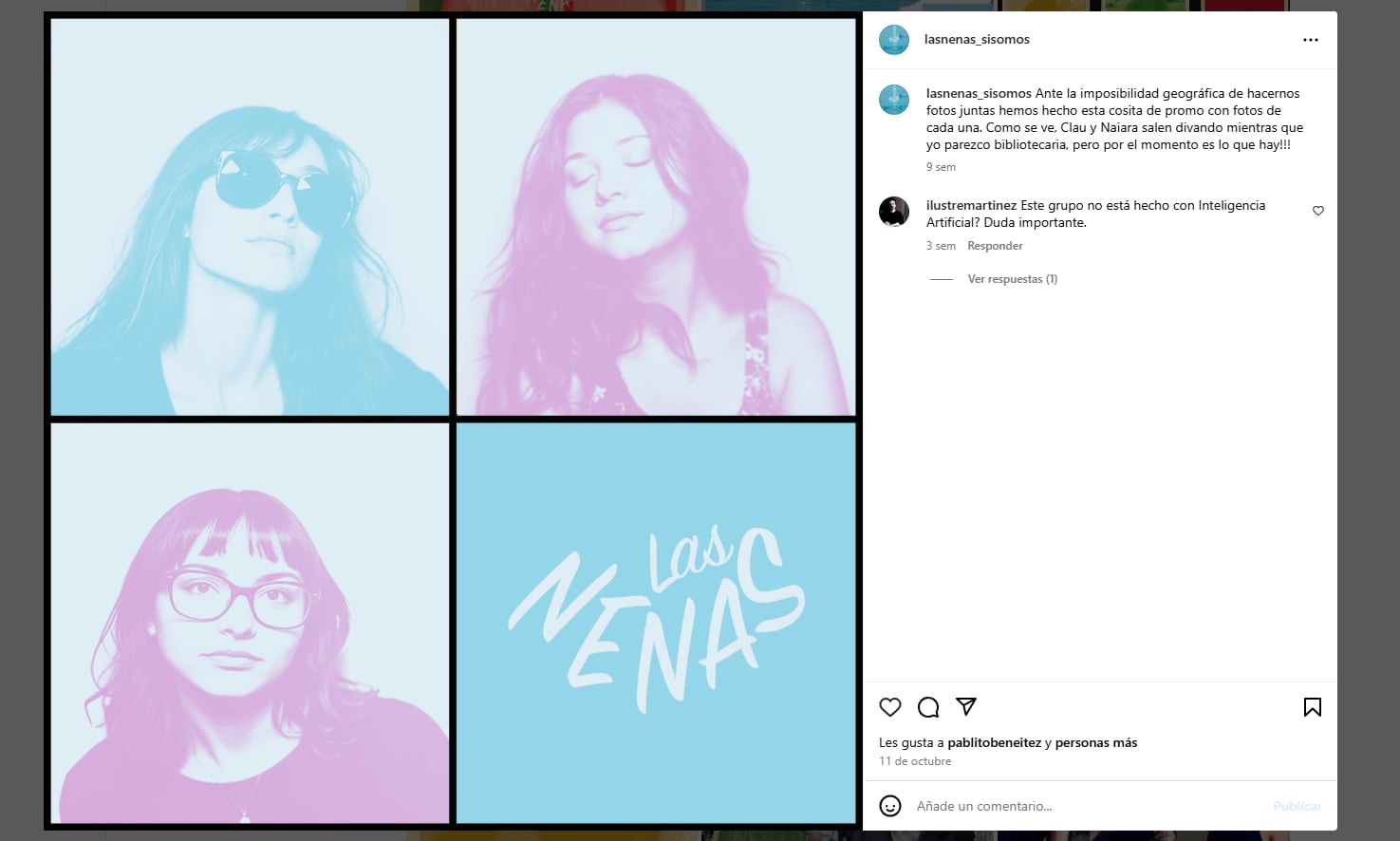On their Instagram profile, Las Nenas claim to be a music group that is made up of three girls: Viviana, Claudia and Naiara. They also claim that they make songs “like those of the girl groups of the fifties and sixties and the dream pop of the nineties.” They complete their biography with a link to their Bandcamp profile, the portal for free and legal music downloads, and an email. They have just over two hundred followers and their name would not resonate so strongly if it were not for the fact that artificial intelligence has crossed their path.
As he advanced elDiario.es and EL PAÍS has been able to confirm in a conversation with Altafonte’s Marketing and PR director, Tomás Mayo, they make music with the help of AI, something they had not mentioned during their promotions. As a consequence, Altafonte, the digital distributor that amplified them on platforms such as Spotify, has removed their songs from all these spaces. At the time, the group reacted on their networks with a brief message: “While we change distributors, Bandcamp will be the only place where you can listen to our music.”
From Altafonte they assure that this is the first time this has happened to them, that they have a “super large” music catalog and that they found out about this controversy through other channels. In reality, the distributor had been working with Las Nenas’ label, Disques Du Lac, for some time, an “indie and small” label. “We found out, on the other hand, and we immediately asked the director of the label to tell us what was happening, they recognized that they were generated by AI and we asked them to cancel the product,” says Tomás Mayo, head of Marketing at Altafonte.
Las Nenas published their first post on Instagram in spring, and in July they announced their first album: “Our new songs are already on Spotify. One is about running away from home and the other is about finding a home.” In October they uploaded their first video clip to Vimeo. Images in which no member of the band appears. There are also no photos of the three members together. In fact, they justified it in October by “geographical impossibility” and with “it is what it is.” Of course, they even have vinyl and a fanzine with limited copies.
Those behind the group assure EL PAÍS that they have used the Udio application, but that unlike music, the lyrics of the 18 songs of Last Bath, their first album, have been composed by them, a boy and a girl. Of course, on their Bandcamp account, they attribute the songs to their alter egos: Naiara Basterrechea, VivianaBucchelli and Claudia Weissman. In a statement, Las Nenas say that they did not intend to deceive anyone, although they admit that it has been a game that has gotten out of hand and that they always found it “a funny thing, a curiosity.” In this sense, they assure that if with a free app they have been able to make “a group that almost seemed real”, what can’t the big record companies do?
AI in music: a complex issue
“We are not going to distribute music generated by AI,” they say at Altafonte. Mayo acknowledges that they have developed the policy on the fly and that the same thing is happening in all the companies: “It caught us new, it was not in our statutes. Once we have faced this, the decision is clear because we are committed to supporting and promoting music made in an authentic and human way.” He admits that AI poses a risk to the integrity of artists, that they defend copyright and that this is a swampy issue.
Mayo points out that at this point the technology to identify AI is not sufficiently developed and that the situation presents a lot of uncertainty regarding copyright and intellectual property. “It is a danger and can cause content saturation,” says Mayo.
Despite everything, Altafonte rules out the bad intention of both the group and the label: “It’s an experiment, I guess they hadn’t thought about it.” And they insist, when they spoke with those responsible for the project, they “assumed” the responsibilities. Last December 15, Las Nenas released two new tracks: Come back for Christmas y Asocial Christmas. Now available on Spotify, but under a “foreign distributor.”

